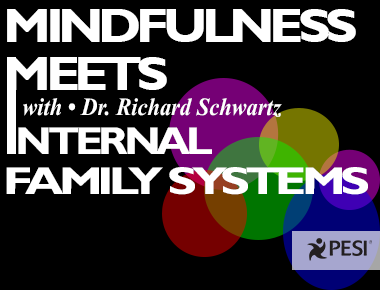RICHARD C. SCHWARTZ, PHD
Online Courses
Digital Seminars, DVDs, and CDs
Books and Card Decks

Richard Schwartz, PhD began his career as a family therapist and an academic at the University of Illinois at Chicago. There he discovered that family therapy alone did not achieve full symptom relief and in asking patients why, he learned that they were plagued by what they called "parts." These patients became his teachers as they described how their parts formed networks of inner relationship that resembled the families he had been working with. He also found that as they focused on and, thereby, separated from their parts, they would shift into a state characterized by qualities like curiosity, calm, confidence and compassion. He called that inner essence the Self and was amazed to find it even in severely diagnosed and traumatized patients. From these explorations, the Internal Family Systems (IFS) model was born in the early 1980s.
IFS is now evidence-based and has become a widely-used form of psychotherapy, particularly with trauma. It provides a non-pathologizing, optimistic, and empowering perspective and a practical and effective set of techniques for working with individuals, couples, families, and more recently, corporations and classrooms.
In 2013, Schwartz left the Chicago area and now lives in Brookline, MA where he is on the faculty of the Department of Psychiatry at Harvard Medical School.
Speaker Disclosures:
Financial: Dr. Richard Schwartz is the Founder and President of the IFS Institute. He maintains a private practice and has a employment relationship with Harvard Medical School. He receives royalties as a published author. Dr. Schwartz receives a speaking honorarium, recording, and book royalties from Psychotherapy Networker and °ÅÀÖÊÓƵ. He has no relevant financial relationships with ineligible organizations.
Non-financial: Dr. Richard Schwartz is a fellow of Meadows Behavioral Healthcare and is a member of the American Family Therapy Academy and the American Association for Marital and Family Therapy. He is a contributing editor for Family Therapy Networker. Dr. Schwartz serves on the editorial boards for the Journal of Feminist Family Therapy, the Contemporary Family Therapy, the Journal of Family Psychotherapy, and the Family Therapy Collections.




